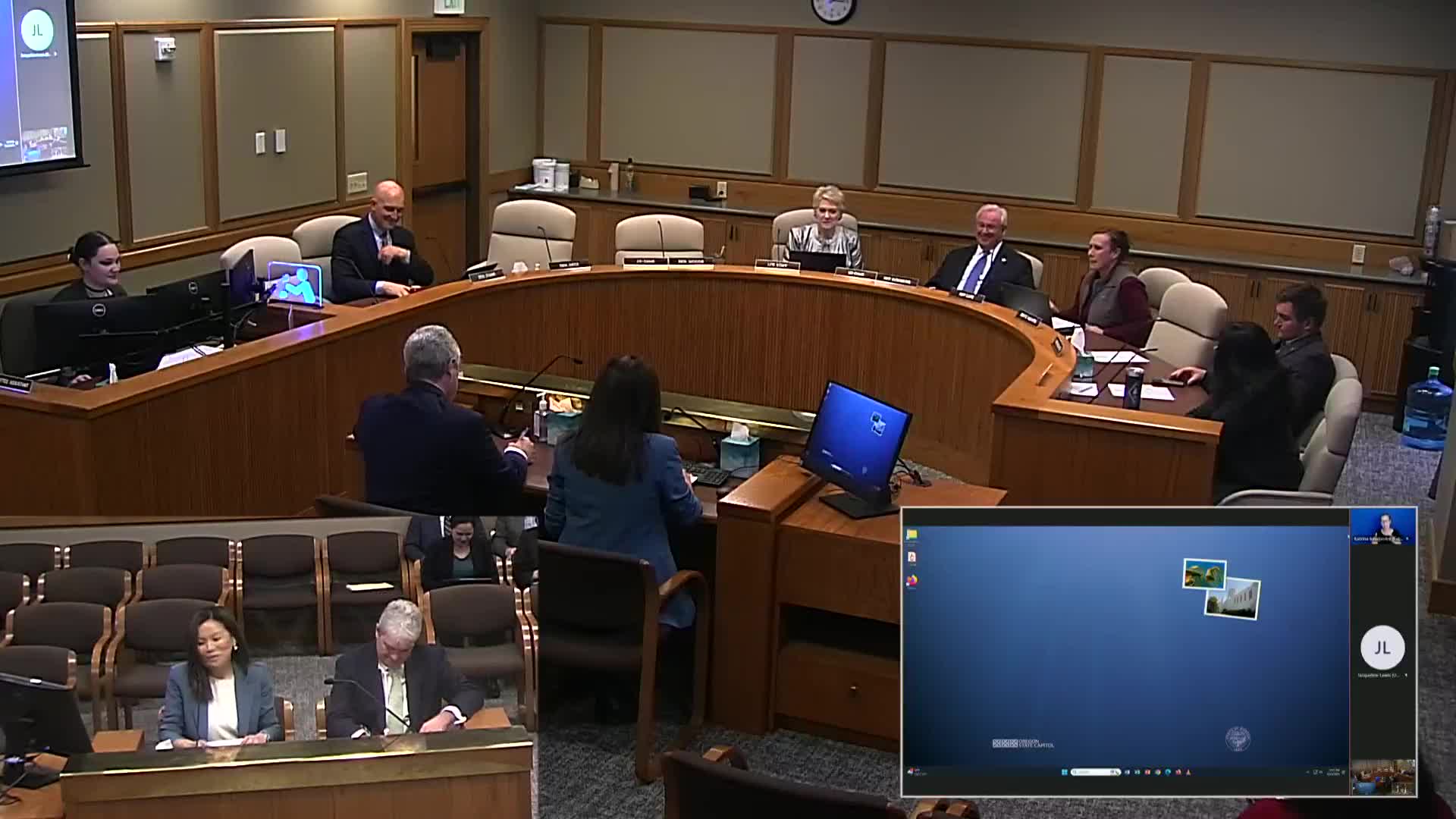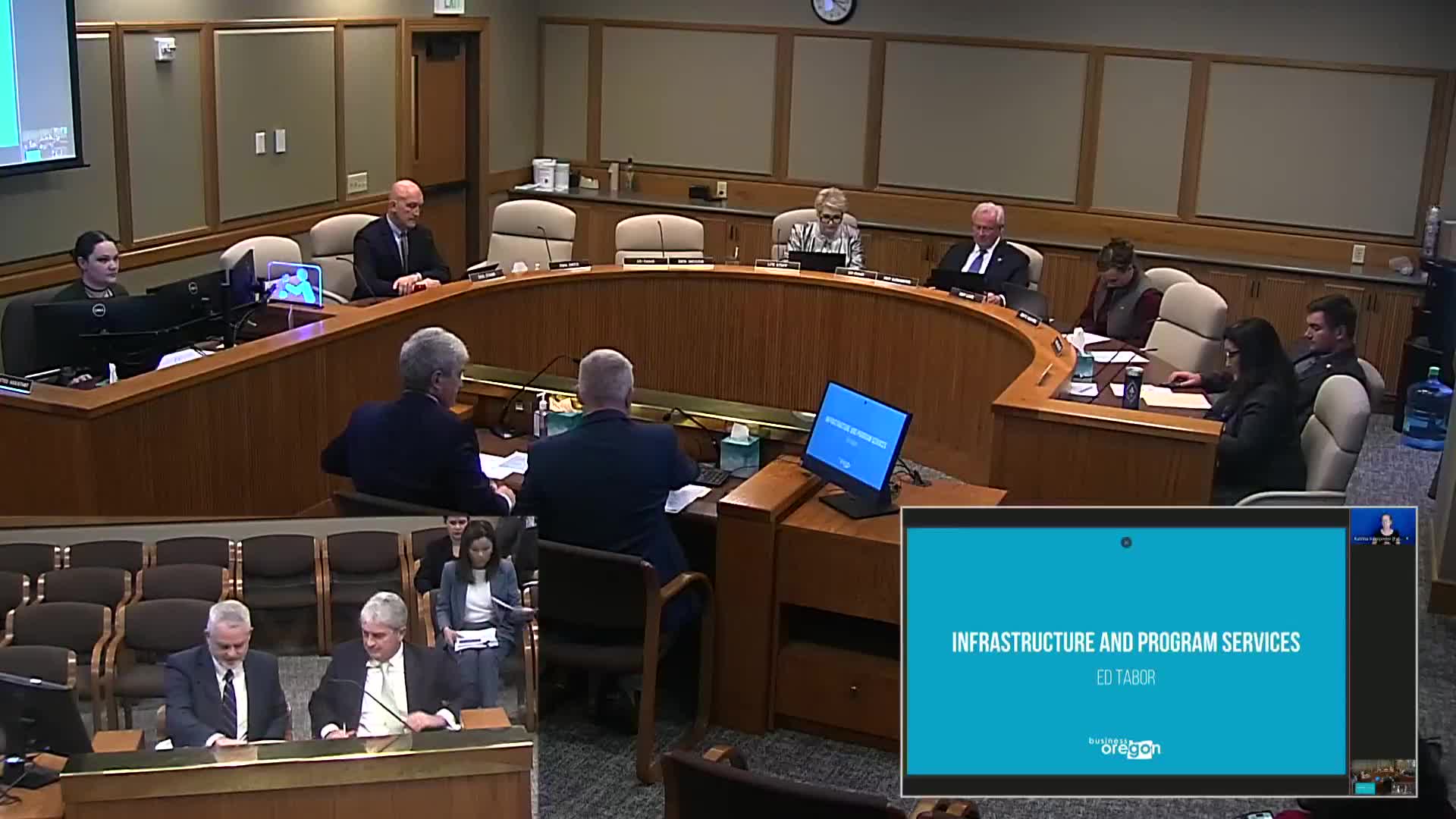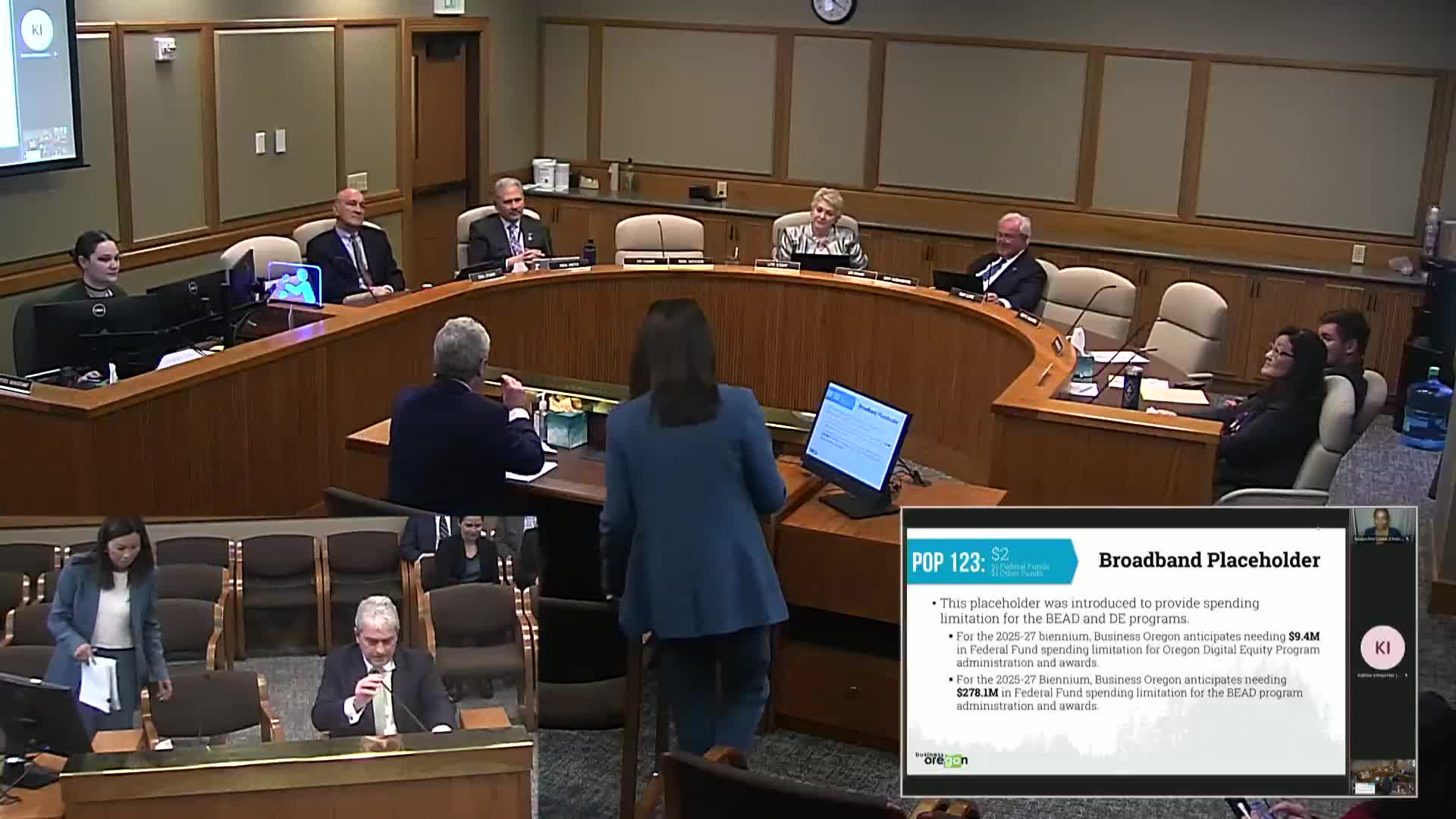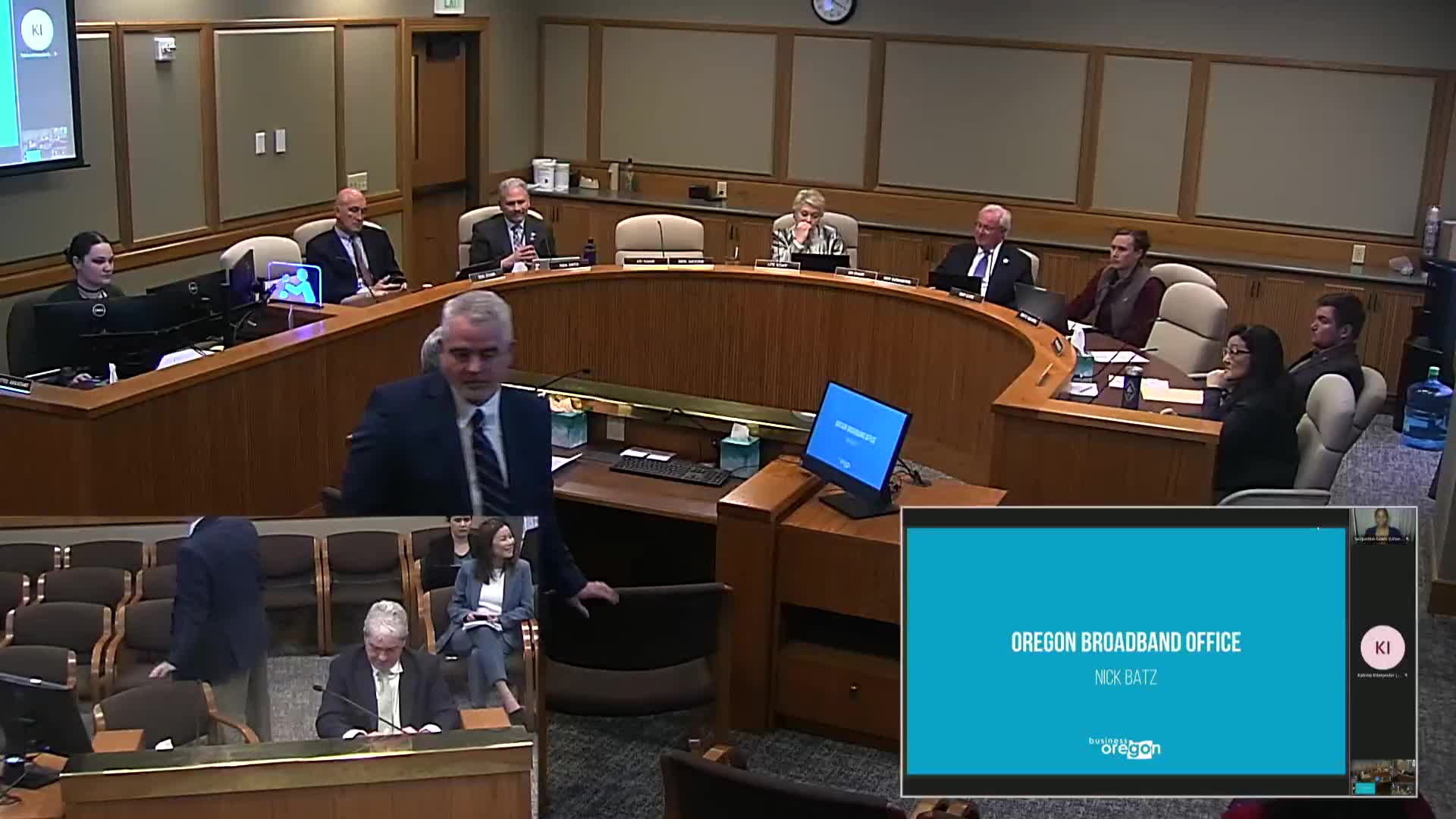Article not found
This article is no longer available. But don't worry—we've gathered other articles that discuss the same topic.

Business Oregon seeks operating funds, larger EDMS ask at March 13 subcommittee meeting

Business Oregon presents $1.5 billion infrastructure package, details on loans, grants and port funding

Business Oregon outlines incentives, recruitment and export support; strategic reserve fund remains limited

